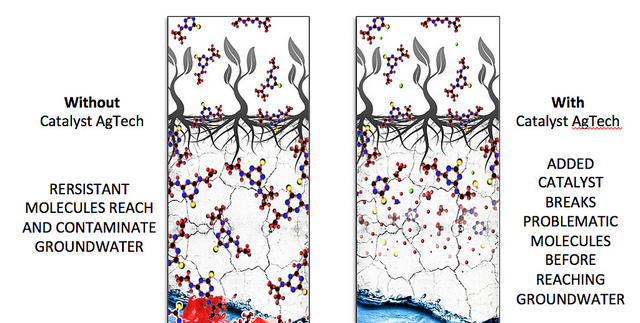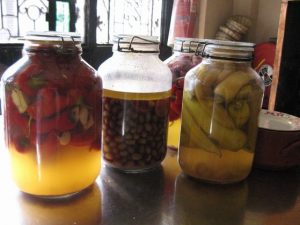
When I interviewed CEO Shalom Nachshon, he told me that in a perfect world, his new Israeli company would go out of business. But as the world’s population expands, with more hungry mouths to feed, Catalyst Agtech is trying to make the best out of an imperfect world.
Using scientific research from the Weizmann Institute of Science in Israel, Catalyst Agtech has developed a novel way to detoxify pesticides and herbicides. There are hundreds, even thousands, of chemicals that could be rendered safe to use from this Israeli technology.
Nachshon uses the example of atrazine, a widely used herbicide. Already banned in Europe and possibly next in America, atrazine is effective at killing weeds in crop fields, but after use it migrates down to the water table and lingers for a long time. Atrazine is suspected of contaminating drinking water, and by doing so can cause serious side effects, like cancer.
Serving hundreds of persistent pesticides
Catalyst Agtech has developed a solution that may let atrazine and similar commonly used chemicals stay on the shelves in America: a catalyst that, when added as pesticide or herbicides, renders them inactive once they reach the water table.
Catalysts speed up chemical reactions that would otherwise happen at very slow rates — years, decades, even centuries.
The effects kick in once the chemicals start migrating downward together to the aquifer. In anaerobic conditions (those without oxygen), the Catalyst Agtech material works its magic so that chemicals like atrazine will no longer persist, or at least not in great quantities.
Atrazine, says Nachshon, is just one of many chemicals that can be neutralized with Catalyst Agtech.
“Everybody knows that there is an ongoing demand for more food in the world, and there is not a question — only technology will solve this demand,” he tells ISRAEL21c.
“We know the most significant factor for improved growth is pesticides. Using them, we can double the crop yield and prevent diseases on the crops. Pesticides are great in this sense, but the dark side is that they are very persistent. After they do their job of killing herbs or nematodes, the stable molecule does not break down.”
Therein lies the conflict: the pesticide is helping but hurting us at the same time. “On one hand, we need the pesticides to get the yield but on the other hand, we are facing environmental threats,” Nachshon points out. “If you take pesticides out, the yield will be decreased by 60 or 70 percent. It is not marginal. It is the heart of the matter, so we must use pesticides.”
Catalyst Agtech does not affect the mechanism of the chemical in the field. “After the job is done and the problematic molecules start migrating down to the groundwater, the trigger that we added starts a chemical reaction that breaks down the problematic molecule to something that’s harmless,” explains Nachshon.
This story first appeared on ISRAEL21c – www.israe21c.org



